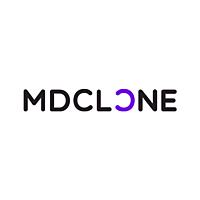Description

CA Test Data Manager

MOSTLY AI Synthetic Data Platform
Comprehensive Overview: CA Test Data Manager vs MOSTLY AI Synthetic Data Platform
CA Test Data Manager and the MOSTLY AI Synthetic Data Platform are two prominent solutions designed for managing and generating test data, with applications across various industries. Let's explore their primary functions, target markets, market share, user bases, and key differentiating factors.
a) Primary Functions and Target Markets
CA Test Data Manager:
Primary Functions:
- Test Data Generation: CA Test Data Manager (TDM) automates the process of creating test data for software testing, reducing the time and effort needed for test data provisioning.
- Data Subsetting and Masking: It provides capabilities for data subsetting and data masking to ensure data privacy and compliance with regulations like GDPR.
- Data Management: Offers a centralized hub for managing data needs across various testing environments.
- Data Profiling: Facilitates data profiling to better understand existing data structures and relationships.
Target Markets:
- Financial Services: For compliance and testing requirements.
- Healthcare: Data privacy and handling of sensitive information.
- Telecommunications: Complex networks and data environments.
- Retail: For enhancing customer experience and operational efficiency.
- Government and Public Sector: Ensuring secure and reliable systems.
MOSTLY AI Synthetic Data Platform:
Primary Functions:
- Synthetic Data Generation: Generates synthetic data that mimics real-world data while ensuring privacy. This is particularly useful in situations where real data cannot be used due to privacy concerns.
- Data Privacy: Provides high-fidelity, privacy-preserving synthetic datasets, ensuring compliance with privacy regulations.
- AI Model Training: Allows for the training of AI models on synthetic datasets, which enhances algorithm development without exposing sensitive information.
Target Markets:
- Finance: Risk modeling and fraud detection.
- Insurance: Customer insights and risk assessment.
- Telecommunications: Network optimization and customer behavior analysis.
- Healthcare and Life Sciences: Research and patient data simulations.
- Automotive: Development of autonomous vehicles.
b) Market Share and User Base
When comparing their market share and user base, the two products serve overlapping but distinct niches within the test data management landscape.
-
CA Test Data Manager: Part of the broader suite of Broadcom's enterprise solutions, CA TDM has an established presence, particularly among large enterprises with complex IT environments. Its market share tends to be strong in traditional industries where legacy systems require efficient testing processes.
-
MOSTLY AI Synthetic Data Platform: This platform is a pioneer in the synthetic data space and is gaining traction particularly in industries focusing heavily on data privacy and AI development. While relatively newer, it is growing rapidly due to increased demand for data privacy solutions.
c) Key Differentiating Factors
CA Test Data Manager:
- Legacy System Integration: Well-suited for companies with existing legacy systems, offering robust integration capabilities.
- Broad Functionalities: Offers a suite of functionalities aimed at both generating new data and managing existing data across environments efficiently.
- Established Market Presence: Long-standing presence with a comprehensive user base across traditional industries.
MOSTLY AI Synthetic Data Platform:
- Focus on Synthetic Data: Emphasizes the generation of synthetic data that is both realistic and privacy-preserving, catering to modern data privacy needs.
- AI and Machine Learning Integration: Designed with AI model training in mind, providing synthetic datasets that facilitate advanced analytics and machine learning.
- Innovative Technology: Provides cutting-edge solutions particularly attractive to companies focused on innovation and data-driven strategy.
In conclusion, while both platforms address data management needs in testing environments, CA Test Data Manager is more suited to traditional data management and legacy system support, whereas the MOSTLY AI Synthetic Data Platform targets modern privacy-preserving data generation, particularly for AI applications. Each solution caters to different aspects of data handling, with their adoption largely depending on specific company needs and the regulatory landscape they operate in.
Contact Info

Year founded :
Not Available
Not Available
Not Available
Not Available
Not Available

Year founded :
Not Available
Not Available
Not Available
Not Available
Not Available
Feature Similarity Breakdown: CA Test Data Manager, MOSTLY AI Synthetic Data Platform
When comparing CA Test Data Manager and MOSTLY AI Synthetic Data Platform, both of which are tools designed to handle test data needs, there are several aspects to consider, including core features, user interfaces, and unique capabilities.
a) Core Features in Common:
-
Data Generation: Both platforms offer capabilities to generate data, whether through synthetic means or by masking/transforming existing data to create test datasets.
-
Data Masking: The ability to anonymize sensitive data while maintaining its usability for testing purposes is a core feature in both solutions.
-
Data Subsetting: Each provides options to create a subset of data, selecting a portion of the database that reflects the whole, improving efficiency while working with large datasets.
-
Data Profiling and Analysis: They offer tools to analyze existing datasets, understanding their structure and contents before masking or generating synthetic data.
-
Integration: Both tools support integration with various databases and other platforms, allowing seamless operation within existing IT infrastructures.
b) User Interfaces Comparison:
-
CA Test Data Manager: It tends to have a more traditional enterprise software interface, with a focus on detailed data manipulation and project management capabilities. It may include a wide array of customizable dashboards and reports, aimed at providing detailed insights and control over the data lifecycle process.
-
MOSTLY AI Synthetic Data Platform: This platform often emphasizes a more modern, streamlined UI, focusing on ease of use and intuitive workflows. Its design generally aims to facilitate quick setup and execution of synthetic data generation tasks, reducing the complexity for users unfamiliar with data science or IT.
c) Unique Features:
-
CA Test Data Manager:
- Comprehensive Test Data Coverage: CA Test Data Manager offers robust functionalities to manage test data end-to-end, from generation, creation, masking, to refreshing and resetting environments. This is particularly suitable for enterprises with complex data architectures and testing needs.
- Advanced Data Masking and Subsetting: It provides sophisticated and customizable algorithms for data masking to ensure compliance with regulations like GDPR and CCPA.
-
MOSTLY AI Synthetic Data Platform:
- AI-Powered Synthetic Data Generation: MOSTLY AI focuses on generating highly realistic synthetic datasets using advanced AI/ML algorithms, which helps in preserving the statistical properties of the original data while ensuring privacy.
- Focus on Privacy and Bias Mitigation: The platform has a strong emphasis on reducing bias and ensuring data privacy, which can be crucial for industries like finance and healthcare where data sensitivity is paramount.
In summary, while both tools offer robust solutions for test data management, their approaches differ: CA Test Data Manager generally provides a more comprehensive suite for traditional enterprise data management tasks, while MOSTLY AI focuses on cutting-edge AI-powered synthetic data generation with a strong emphasis on privacy and ethical use. Users should evaluate these tools based on their specific needs, considering factors like the complexity of data environments, compliance requirements, and the technical expertise of their teams.
Features

Not Available

Not Available
Best Fit Use Cases: CA Test Data Manager, MOSTLY AI Synthetic Data Platform
a) CA Test Data Manager (TDM)
CA Test Data Manager is a robust tool primarily used for test data management in software development and testing environments. It is best suited for:
-
Enterprise-Level Software Development: Large enterprises or any organization with complex software development lifecycles will find CA Test Data Manager extremely useful. The tool helps in generating, provisioning, and managing test data efficiently, reducing the time spent on manual test data generation.
-
Industries with Stringent Compliance Needs: Industries such as finance, healthcare, and telecommunications that require compliance with regulations like GDPR or HIPAA can leverage CA TDM to ensure that test data is compliant with data privacy regulations.
-
Complex IT Environments: For businesses with heterogeneous IT landscapes involving various legacy systems, databases, and mainframes, CA TDM can integrate and manage test data across different systems seamlessly.
-
Projects Requiring Data Masking: Projects that require masking or obfuscation of sensitive data for testing purposes will benefit significantly from CA TDM’s capabilities.
b) MOSTLY AI Synthetic Data Platform
MOSTLY AI Synthetic Data Platform is designed for creating synthetic data that mirrors real datasets while ensuring privacy. It is ideal for:
-
Data-Driven Businesses: Organizations that rely heavily on data analytics and AI, such as tech companies, research institutions, and marketing firms, can benefit from generating synthetic data for analysis, modeling, and strategy development without compromising on privacy.
-
AI and Machine Learning Projects: When training machine learning models, MOSTLY AI’s platform can generate realistic synthetic data that helps in preventing model biases and ensures that models have diverse and rich datasets for training.
-
Projects with Tight Data Privacy Regulations: For companies in sectors like healthcare, finance, and insurance where data privacy is a concern, synthetic data can be used to share and analyze data without the risk of exposing sensitive information.
-
Small to Medium-Sized Enterprises (SMEs) with Limited Data: SMEs may not have access to large datasets. MOSTLY AI can provide synthetic data that allows these organizations to test and validate their AI models effectively.
d) Catering to Different Industry Verticals or Company Sizes
-
CA Test Data Manager is typically aligned with larger enterprises across various sectors that need robust infrastructure for test data management. Financial services, healthcare, telecommunications, and government sectors, which deal with vast amounts of data requiring careful handling and compliance, are well-served by CA TDM.
-
MOSTLY AI Synthetic Data Platform appeals to a broader range of company sizes, from small startups to large multinational corporations. It is particularly valuable in industries like finance, insurance, healthcare, and retail, where understanding customer behavior or developing new algorithms without exposing personal data is crucial. Its ability to generate synthetic data makes it more accessible to smaller businesses that may not have extensive datasets but require quality data for AI and analytics projects.
Both platforms are designed to address the modern challenges of data management, privacy, and utilization but serve different needs depending on the complexity of IT environments, data privacy imperatives, and the specific objectives of businesses across varying sizes and industries.
Pricing

Pricing Not Available

Pricing Not Available
Metrics History
Metrics History
Comparing undefined across companies
Conclusion & Final Verdict: CA Test Data Manager vs MOSTLY AI Synthetic Data Platform
To provide a comprehensive conclusion and final verdict for CA Test Data Manager and MOSTLY AI Synthetic Data Platform, we will evaluate each tool based on various factors, such as functionality, ease of use, cost, support, and innovative features.
a) Considering all factors, which product offers the best overall value?
When comparing CA Test Data Manager and MOSTLY AI Synthetic Data Platform, the best overall value depends on the specific needs and priorities of the organization.
-
CA Test Data Manager likely offers better value for organizations prioritizing a comprehensive, traditional test data management solution. It provides extensive features for managing, masking, and generating test data from real-world datasets, which is crucial for compliance and security.
-
MOSTLY AI Synthetic Data Platform is better for organizations that emphasize data privacy and modern machine learning/AI capabilities. Its synthetic data generation ensures privacy compliance and is beneficial for organizations that need realistic yet completely anonymized datasets.
b) What are the pros and cons of choosing each of these products?
CA Test Data Manager
Pros:
- Comprehensive Data Management: Offers robust tools for data coverage analysis, data masking, and subsetting, ensuring data compliance and security.
- Integration Capabilities: Easily integrates with other development and testing tools, supporting seamless workflows.
- Established Product: As a mature solution, it benefits from an extensive track record of customer success.
Cons:
- Complexity: Can be complex to implement and requires a learning curve to utilize its full capabilities.
- Cost: May represent a higher initial investment compared to niche solutions, especially in smaller organizations.
MOSTLY AI Synthetic Data Platform
Pros:
- Data Anonymization: Excels in generating AI-driven synthetic data that mimics real datasets while ensuring privacy and compliance.
- Machine Learning Integration: Ideal for training AI models without risking data privacy.
- Ease of Use: Generally user-friendly, focusing on automated processes.
Cons:
- Limited Traditional Features: May not fully satisfy needs for classic test data management tasks such as masking and subsetting from real data.
- Emerging Technology: As a relatively new solution, it may have fewer case studies or long-term customer success stories.
c) Recommendations for users deciding between CA Test Data Manager and MOSTLY AI Synthetic Data Platform
-
Evaluate Needs and Use Cases:
- If your organization deals extensively with sensitive information and must assure privacy while needing comprehensive data management capabilities (including data masking, subsetting, etc.), opt for CA Test Data Manager.
- If the priority is generating large volumes of privacy-preserving synthetic data for advanced analytics or machine learning applications, MOSTLY AI Synthetic Data Platform is more suitable.
-
Consider Integration and Cost:
- Assess existing systems and evaluate which tool integrates more seamlessly. Weigh the upfront and ongoing costs against your budget constraints.
-
User Experience:
- Engage in trials or request demos from both vendors to gauge ease of use, support, and alignment with your team’s expertise.
-
Future-Proofing:
- Consider the importance of future expansions of your data practices. If synthetic data is a strong focus for future projects, heavily consider MOSTLY AI.
In conclusion, both platforms have distinct strengths, and the choice should be guided by the organization's specific data management needs, privacy compliance requirements, and future data strategy.
Add to compare
Add similar companies




